Respiratory Diseases in Racing Pigeons Causes, Symptoms & Effective Treatments
Racing pigeons are elite athletes, requiring optimal respiratory health for peak performance. However, respiratory diseases are a major concern, affecting both breeders and racers. These conditions, caused by bacteria, viruses, fungi, and parasites, can severely impair performance and even threaten the life of your birds.
Understanding these diseases, their causes, symptoms, and treatments is crucial for maintaining a healthy and competitive flock. In this blog post, we’ll cover the most common respiratory pathogens in pigeons, their impact, and the best prevention and treatment strategies as i understood and implement them on my birds.
Common Respiratory Pathogens in Racing Pigeons
1. Mycoplasma gallisepticum
This bacterial infection is a leading cause of chronic respiratory disease in pigeons.
- Symptoms: Coughing, nasal discharge, wheezing, conjunctivitis, and reduced flight performance.
- Transmission: Spread through direct contact, contaminated water, and airborne droplets.
- Treatment: Antibiotics such as doxycycline and tylosin are effective.
2. Streptococcus spp. (Including Streptococcus pneumoniae)
This bacteria can cause severe systemic infections and respiratory distress in pigeons.
- Symptoms: Labored breathing, lethargy, joint swelling, weight loss, and sudden death in severe cases.
- Transmission: Contaminated food, water, and close contact with infected birds.
- Treatment: Broad-spectrum antibiotics such as amoxicillin or enrofloxacin.
3. Mycobacterium (Including Avian Tuberculosis)
A chronic bacterial infection that affects multiple organs, including the lungs.
- Symptoms: Persistent weight loss, respiratory distress, diarrhea, and weakness.
- Transmission: Ingestion of contaminated food and water or inhalation of infected particles.
- Treatment: No definitive cure; infected birds should be removed to prevent spread.
4. Pasteurella multocida (Fowl Cholera)
A severe bacterial disease that causes acute or chronic respiratory issues.
- Symptoms: Swollen wattles, nasal discharge, difficulty breathing, and sudden death.
- Transmission: Direct contact, contaminated surfaces, and infected feed.
- Treatment: Antibiotics such as tetracycline or penicillin.
5. Trichomonas gallinae (Canker)
A protozoan parasite affecting the upper respiratory tract.
- Symptoms: Yellowish-white lesions in the mouth, throat, or crop, difficulty swallowing, and respiratory distress.
- Transmission: Contaminated water and direct contact with infected birds.
- Treatment: Antiprotozoal medications like metronidazole or ronidazole.
The Importance of Respiratory Health in Breeding & Racing
Breeding
Respiratory diseases can be passed from parents to chicks through direct contact or infected nesting materials. Testing and treating breeding pairs before the season is crucial to prevent the spread of disease.
Racing
Respiratory health directly affects endurance and speed. Infected pigeons suffer from poor oxygen exchange, leading to exhaustion and underperformance during races.
Antibiotic Sensitivity Testing: A Key Step in Treatment
Why It’s Important
Using antibiotics without proper testing can lead to resistance, making future infections harder to treat. An antibiotic sensitivity test helps determine the most effective medication for the specific pathogen infecting your pigeons.
Consequences of Misusing Antibiotics
- Treatment failure: The infection persists, leading to further complications.
- Antibiotic resistance: Pathogens become resistant, making treatment more difficult.
- Weakened immunity: Overuse of antibiotics can disrupt gut flora, impacting overall health.
Common Respiratory Diseases & Their Treatments
1. Respiratory Tract Infections
- Causes: Bacteria (Mycoplasma, Chlamydia), viruses (Paramyxovirus, Circovirus).
- Symptoms: Nasal discharge, sneezing, wheezing, coughing, labored breathing, watery eyes.
- Treatment: Broad-spectrum antibiotics (doxycycline, tylosin) or antiviral medications.
2. Canker (Trichomoniasis)
- Causes: Protozoan parasite (Trichomonas gallinae).
- Symptoms: Yellowish plaques in the mouth, difficulty swallowing, respiratory distress.
- Treatment: Antiprotozoal drugs (metronidazole, ronidazole).
3. Aspergillosis
- Causes: Fungal infection (Aspergillus fumigatus) due to poor ventilation and humidity.
- Symptoms: Labored breathing, nasal discharge, coughing, lethargy.
- Treatment: Antifungal medications (itraconazole, amphotericin B).
4. Pigeon Ornithosis (Chlamydiosis)
- Causes: Chlamydia psittaci infection.
- Symptoms: Respiratory distress, swollen eyes, conjunctivitis, nasal discharge.
- Treatment: Tetracycline antibiotics.
5. Air Sac Mite Infestation
- Causes: Mite infestation in the respiratory tract.
- Symptoms: Heavy breathing, head shaking, loss of voice.
- Treatment: Insecticidal treatments (ivermectin).
Prevention & Loft Management Tips
1. Maintain Strict Hygiene
- Clean and disinfect lofts, perches, and feeding areas regularly.
- Remove droppings and stale food to prevent bacterial growth.
2. Ensure Proper Ventilation
- Good airflow prevents the buildup of moisture and harmful pathogens.
- Avoid overcrowding to reduce stress and disease transmission.
3. Quarantine New Birds
- Isolate and test new arrivals before introducing them to the loft.
- Observe for signs of illness before allowing integration.
4. Provide a Nutrient-Rich Diet
- Feed a balanced diet with proteins, vitamins, and minerals.
- Include immune-boosting supplements like probiotics and iron-enriched formulas.
5. Keep Up with Vaccinations
- Regularly vaccinate against preventable diseases like paramyxovirus.
- Follow veterinary recommendations for booster shots.
Respiratory Diseases in Racing****Final Thoughts
Respiratory diseases pose a serious threat to the health and performance of racing pigeons. However, early detection, targeted treatment, and strict loft management can significantly reduce their impact. By implementing proactive testing, antibiotic sensitivity checks,** Pigeons: Causes, Symptoms & Effective Treatments**
Racing pigeons are elite athletes, requiring optimal respiratory health for peak performance. However, respiratory diseases are a major concern, affecting both breeders and racers. These conditions, caused by bacteria, viruses, fungi, and parasites, can severely impair performance and even threaten the life of your birds.
Understanding these diseases, their causes, symptoms, and treatments is crucial for maintaining a healthy and competitive flock. In this blog post, we’ll cover the most common respiratory pathogens in pigeons, their impact, and the best prevention and treatment strategies.
“Until next time, keep them healthy and flying high!”


